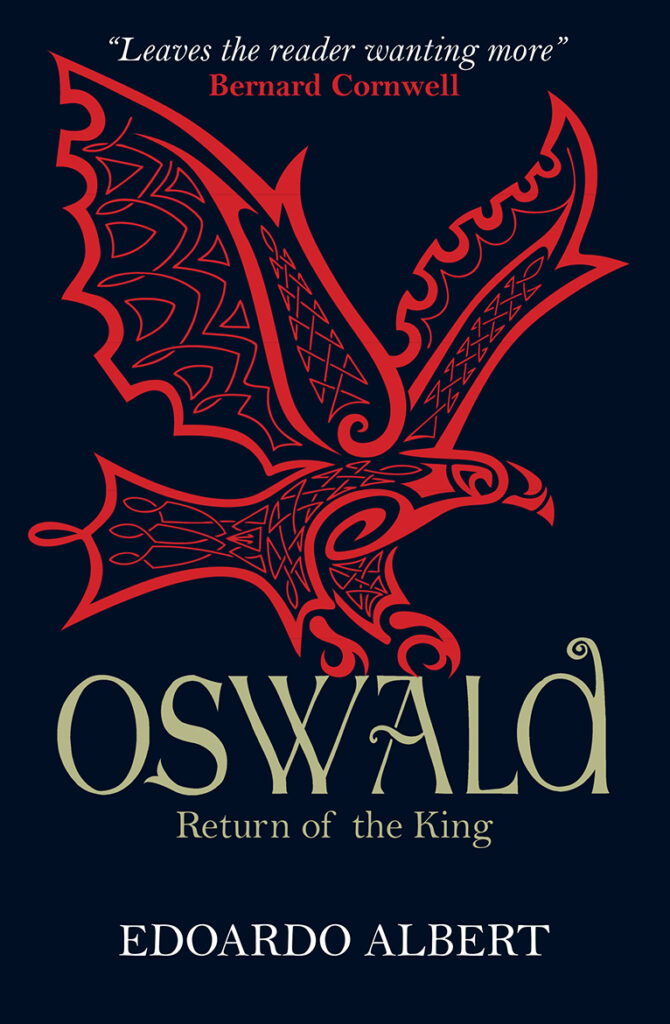New God for Old 5: Oswald, the King Returns

King Edwin was dead. As such, it seemed that the new faith had failed. But away to the north, living in exile in the sea-spanning kingdom of Dál Riata was an ætheling, an eminently throne worthy man, named Oswald. The son of Æthelfrith, Oswald had fled into exile with his mother and younger brother, Oswiu, when Edwin, his Uncle Edwin, had killed his father. In exile, Oswald had embraced the new faith, learning its tenets and drinking its beauty from the monks of Iona.
In 634, Oswald, the king in exile, returned from over the sea and, meeting Cadwallon in battle near Heavenfield, was victorious. Cadwallon was killed. Oswald, in the tumultuous manner of 7th-century kingship, had vaulted from exile to being the most powerful king in the land in the course of a single battle. And where Edwin’s conversion to Christianity was clearly at least in part political, Oswald’s was just as clearly heart deep and personal: he ascribed his victory at Heavenfield to the intercession of St Columba, the founder of the monastery at Iona, and the king immediately sent to Iona for monks to come over to bring his people to the new faith.
The monk who came was named Aidan. Founding a monastery on the tidal island of Lindisfarne, within sight of the royal stronghold at Bamburgh, Aidan set about the conversion of the Northumbrians with the vocal support of the king – who undertook to translate for Aidan until he learned to speak English. Together, king and abbot created something that had not existed in Britain for centuries: a kingdom that could survive the death of its king. For Oswald died after a reign of eight years, falling in battle with Penda of Mercia, who had remained resolutely pagan when the other kings of the Anglo-Saxons had sought to ally themselves with Oswald by accepting baptism.
But even though Oswald had died, the kingdom held together, bound by the glue of the new religion that Aidan had inculcated in its people. Oswald’s younger brother, Oswiu, took over as king in a somewhat shrunken Northumbria, playing for time against the overweening might of Penda, who rampaged across the country for the next 13 years, removing kings almost at will. In 655, however, the pressure from Penda had become intolerable and Oswiu risked everything on one throw of the battle dice.
Despite having to face Penda’s much larger army, Oswiu marched to battle. The two armies met at the River Winwæd, probably in the vicinity of Leeds, on 15 November 655 in driving rain. In the appalling conditions, Penda’s army broke and fled, more dying in the waters of the flooded river than fell to the sword, and Penda himself was killed. The last great pagan king of the Anglo-Saxons was dead. The gods of battle had chosen the winner in the contest for the soul of the English, and he was the God whose name is peace. (And the story is told in my novels, Oswald: Return of the King and Oswiu: King of Kings.)
0 Comments